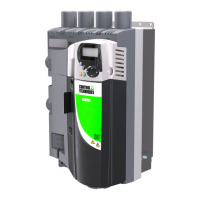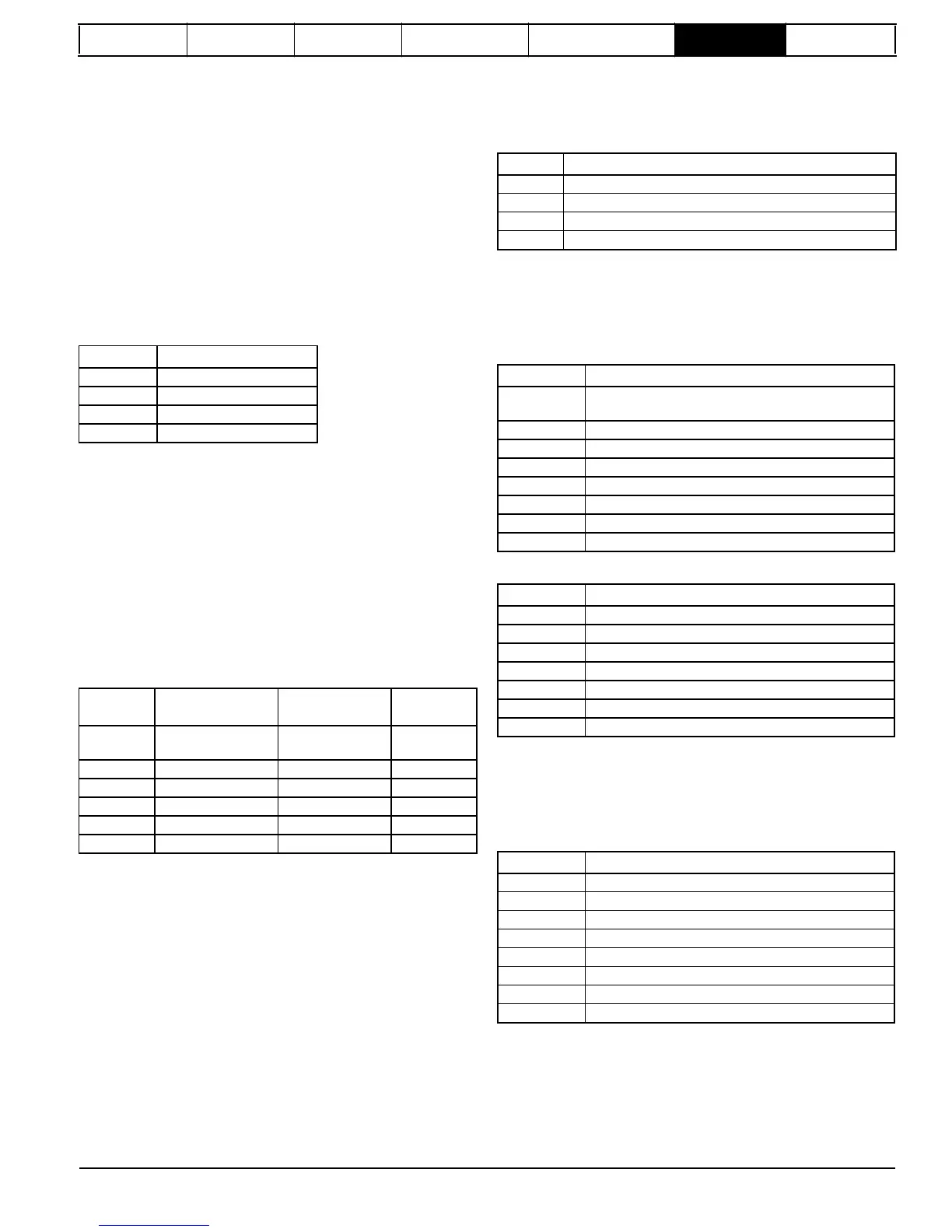format
Advanced parameter
descriptions
Serial
comms
6.2.2
Slave
address
The first byte of the frame is the slave node address. Valid slave node
addresses are 1 through 247 decimal. In the master request this byte
indicates the target slave node; in the slave response this byte indicates
the address of the slave sending the response.
Global
addressing
Address zero addresses all slave nodes on the network. Slave nodes
suppress the response messages for broadcast requests.
6.2.3
MODBUS
registers
The MODBUS register address range is 16bit (65536 registers) which at
the protocol level is represented by indexes 0 through 65535.
PLC
registers
Modicon PLCs typically define 4 register 'files' each containing 65536
registers. Traditionally, the registers are referenced 1 through 65536
rather than 0 through 65535. The register address is therefore
register files can be considered to map onto a single register address
space. However, specific function codes are defined in MODBUS to
support access to the "coil" registers.
All standard CT drive parameters are mapped to register file '4' and the
coil function codes are not required.
CT
parameter
mapping
All CT products are parameterized using the #menu.param notation.
Indexes 'menu' and 'param' are in the range 0 through 99. The
#menu.param is mapped into the MODBUS register space as menu*100
+ param.
To correctly map the parameters at the application layer, the slave
device increments the received register address. The consequence of
6.2.6
Function
codes
The function code determines the context and format of the message
data. Bit 7 of the function code is used in the slave response to indicate
an exception.
FC03
Read
multiple
Read a contiguous array of registers. The slave imposes an upper limit
on the number of registers, which can be read. If this is exceeded the
slave will issue an exception code 2.
Writes a value to a single 16bit register. The normal response is an echo
of the request, returned after the register contents have been written.
The register address can correspond to a 32bit parameter but only 16
bits of data can be sent.
The MODBUS protocol specification defines registers as 16bit signed
integers. All CT devices support this data size.
Refer to the section 6.2.7 Extended data types on page 208 for detail on
accessing 32bit register data.
6.2.4
Data
consistency
All CT devices support a minimum data consistency of one parameter
(16bit or 32bit data). Some devices support consistency for a complete
multiple register transaction.
6.2.5
Data
encoding
MODBUS RTU uses a 'big-endian' representation for addresses and
data items (except the CRC, which is 'little-endian'). This means that
when a numerical quantity larger than a single byte is transmitted, the
MOST significant byte is sent first. So for example
16 - bits
0x1234
would be
0x12
0x34
32 - bits
0x12345678
would be
0x12
0x34
0x56
0x78
Mentor MP Advanced User Guide
207
Issue Number: 4
www.onxcontrol.com
Byte

